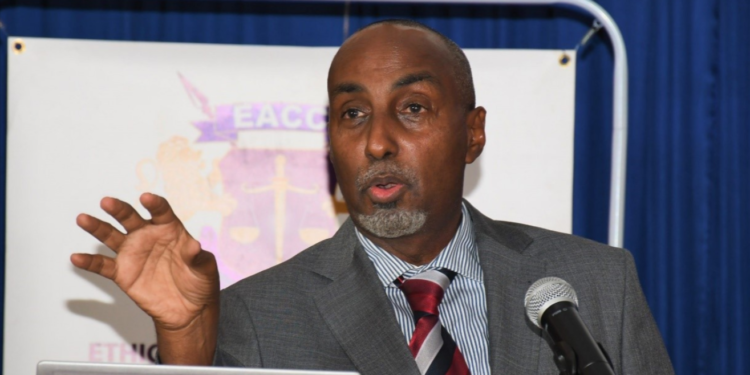Deputy CEO of the Ethics and Anti-Corruption Commission (EACC), Abdi Mohamud, testified on Tuesday that tender specifications were deliberately altered to benefit Shoobika Impex Ltd, a company allegedly linked to Deputy President Rigathi Gachagua. Mohamud’s testimony adds a new layer of complexity to the impeachment motion against Gachagua, raising serious questions about procurement processes within the Kenya Medical Supplies Agency (KEMSA).
The Senate session, which has drawn significant public interest, focused on allegations of corruption and misconduct related to the procurement of long-lasting insecticide nets by KEMSA. Mohamud, who has been with the EACC since 2005 and serves as the head of investigations, detailed the commission’s findings during the ongoing inquiry into Gachagua’s conduct in office.
“We found that specifications were changed to suit Shoobika Impex Ltd, which was represented by a local agent,” Mohamud stated. He explained that these alterations were requested by the then Principal Secretary of the Ministry of Health, who indicated that certain procurement irregularities warranted an investigation by the EACC. “The changes were made to fit the chemicals that Shoobika Impex was supposed to supply,” he added.
The testimony highlighted multiple issues during the tender process, including a last-minute extension that allowed Shoobika Impex to submit crucial documents. According to Mohamud, the bid bond required for the tender was delivered just before the closing date, prompting officials to extend the deadline to accommodate the submission. “This was not in line with standard procurement practices, where all documentation should be in place prior to the tender closing,” he remarked.
The investigation also uncovered that other bidders, including Tangier International Trading Company, were disqualified on questionable grounds. Mohamud noted, “A company that had valid manufacturing rights was disqualified due to alleged lack of authorization, while the favored company faced no such scrutiny.” He emphasized that the eventual winner of the tender was a firm that had previously been disqualified, further complicating the procurement landscape.
In response to questions from senators, Mohamud confirmed that the EACC’s findings have been documented and submitted to the Senate. He stated that disciplinary actions have been recommended against several KEMSA officials involved in the tendering process, including the Chief Executive Officer.
The session also touched on the broader implications of these findings for public accountability in Kenya. Mohamud explained the legal framework surrounding conflicts of interest, particularly how state officers must declare potential conflicts, including those involving family members and business associates. “Public officers are required to maintain transparency and integrity in their dealings, and any deviation from this could result in severe consequences,” he added.


















